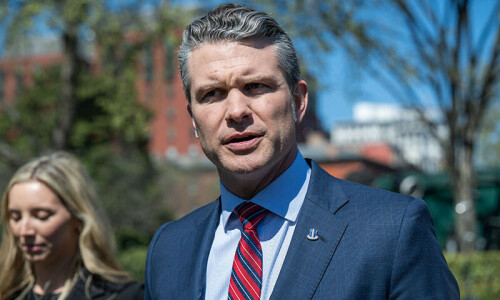More Pakistanis went abroad to find jobs in the first nine months of 2019 than in entire 2018 as economic growth slowed down and unemployment rate remained high.
Historical evidence suggests this will lead to increased home remittances.
In Jan-Sept, 430,529 workers went abroad for jobs, up 12.5 per cent from 382,439 people who went overseas in the entire last year. The government is taking pride in this fact and is also promising that it will result in thicker inflows of remittances.
The concentration of expatriate Pakistanis in Saudi Arabia and the UAE makes our inflows too vulnerable
But before pinning our hopes on such promises, let’s first see if there is a correlation between an increase in the yearly export of manpower and the ultimate rise in remittances in the near future. In 2008 (calendar year), 430,314 Pakistanis went overseas against 208,733 a year before.
Quite expectedly, home remittances in 2008-09 surged 21pc to $7.81 billion. Again, Pakistan exported an all-time high 946,571 workers in 2015 (calendar year), up from 752,466 a year ago. But what happened then? Home remittances in 2015-16 increased just 6.4pc to $19.92bn.
So a correlation exists between the size of manpower exports and volumes of home remittances.
But if we obtain a 21pc increase in remittances after doubling the manpower export and — and 6.4pc growth in inflows after increasing manpower exports by no less than 25pc — the issue requires a deeper analysis.
It makes one thing clear: gains in home remittances via additional exports of manpower are very little per person. That compels one to look at the ratio between unskilled labour and semi-skilled workers, skilled workers, managers and professionals who leave the country each year for jobs abroad.
In 2015, their respective shares were 39.3pc and 60.7pc. And in the first nine months of this year, these are 39.4pc and 60.6pc, according to the Bureau of Emigration and Overseas Employment. So as a rule of thumb, we should not expect any dramatic increase in remittances in the near future just on the basis of larger exports of manpower.
When it comes to projecting the volume of remittances, a number of variables become important like the total size of a country’s diaspora and its distribution across geographical locations and occupational lines, yearly exports of manpower and its quality, economic situation in host countries and the treatment of immigrant workers there as well as the willingness and ability of emigrant workers to send foreign exchange back home.
Currently, close to 11 million Pakistanis live and work abroad. But 42.4pc of them have been categorised as non-skilled labour
Currently, close to 11 million Pakistanis live and work abroad. So the size of our diaspora is quite big. But 42.4pc of them have been categorised as non-skilled labour. The rest of them are mostly semi-skilled and skilled workers. Managers and professionals, including accountants, artists, engineers, doctors, nurses, designers, oil industry and ICT professionals, photographers, pharmacists, surveyors and salespeople make up 5-6pc of our total overseas population.
This distribution across occupational lines means no dramatic rise in remittances can be expected in the short-to-medium term unless we start exporting fewer workers and more managers and professionals. That is neither possible nor desirable.
According to official statistics, about 86.6pc of total overseas Pakistanis are stationed in Saudi Arabia and the United Arab Emirates. This huge concentration in a particular region makes our remittances too vulnerable. The economies of the two countries are in trouble and both countries — Saudi Arabia with a greater zeal — have been pursuing localisation of jobs. In order to promote localisation, boost the economy through productivity and deepen their political and economic ties with the countries that matter in today’s world, Saudi Arabia and the United Arab Emirates are limiting the imports of manpower from developing countries like ours to workers and low-paid managers and professionals. They are hiring highly paid managers and professionals from India, China, Canada, United States, United Kingdom and other western countries where educational and training standards are better than in Pakistan. So hoping for a constant rise in remittances from these two countries is a bit illogical.
Remittances from Saudi Arabia have already stagnated. The rise in remittances from the United Arab Emirates in 2018-19 and in the first quarter of this fiscal year is chiefly attributable to the crackdown on illegal channels for the transfer of money from there to Pakistan.
Lately, Malaysia has emerged as a main market for expatriate Pakistanis. In the last fiscal year, we got from Malaysia a whopping $1.55bn or 7.1pc of the total remittances of $21.84bn. During the first quarter of this fiscal year, Pakistanis living and working in Malaysia sent home 7.3pc of the total $5.48bn remittances.
One plausible reason for such a huge contribution of just over 100,000 Pakistanis in Malaysia is that most of them are engaged in full-time or part-time business activities. But sustainability of this trend requires a deeper analysis of how on earth 105,338 Pakistanis in Malaysia manage to remit home such a huge amount of foreign exchange.
The United States and the United Kingdom, two traditional host nations of Pakistani professionals, still retain their high positions in our remittances’ markets. Thanks to the tightening of screws on illegal channelling of remittances from there, particularly from the United Kingdom, cumulative yearly inflows from the two countries still account for 31pc of our total remittances.
But amidst fears of an impending economic slowdown in both the United States and the United Kingdom, we need to work diligently to ensure that foreign exchange flows from these developed nations remain steady in the future as well.
Published in Dawn, The Business and Finance Weekly, October 21st, 2019














































